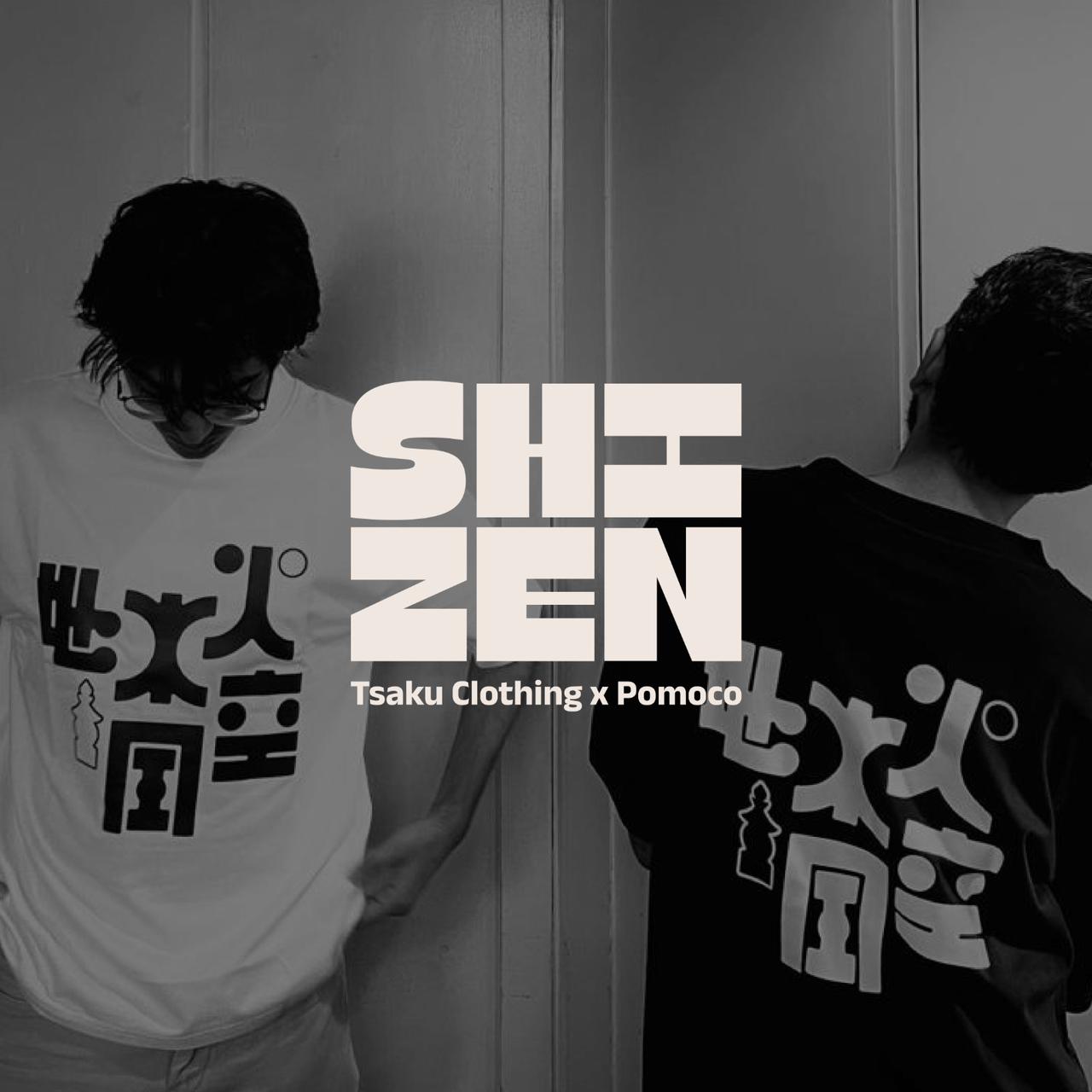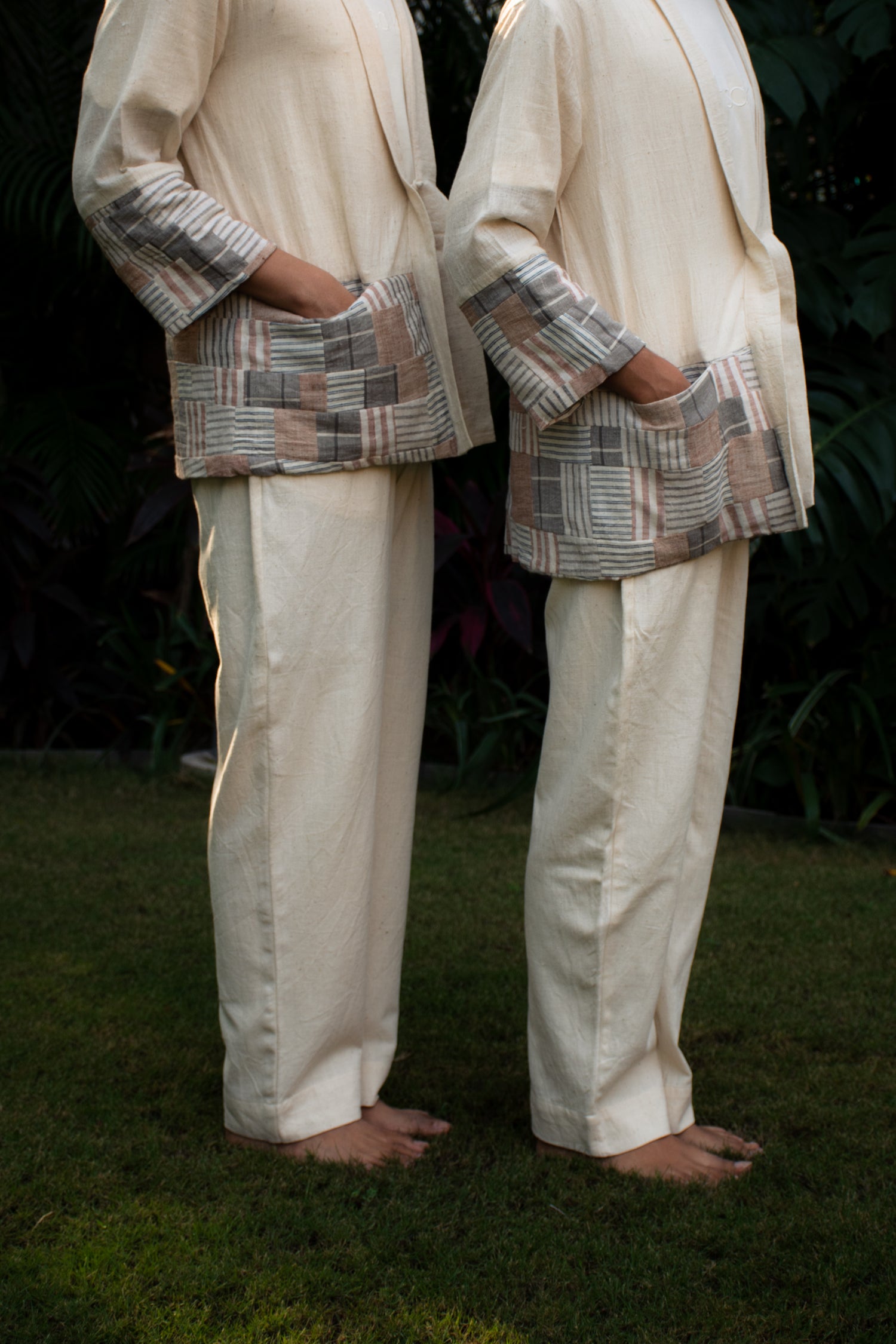About us
Tsaku is a slow fashion brand that focuses on bringing the Indian and Japanese cultures together socially responsibly. We are 100% made in India. We work on creating a brand that grows ethically. This means all our fabrics are locally sourced and our products are produced by a fair trade manufacturing unit that empowers and supports people.
India and Japan have strong cultural histories. In both countries, traditional clothing has been relegated to the margins of celebratory occasions such as Matsuri or Seijinshiki in Japan, and Diwali or Navaratri in India.
We need to make sure our histories live on in one form or the other. We have tried to bring Indian and Japanese histories together and made them into casual and comfortable clothing.

WHY INDIA AND JAPAN?
Japan and India share numerous cultural similarities, ranging from seasonal festivals and nature-inspired rituals to traditional arts like Kabuki and Kathakali.
The intergenerational shift in attitudes toward traditional clothing reflects broader societal changes. Educational institutions in both nations are endeavoring to bridge the gap between tradition and convenience.
Moreover, the erosion of cultural heritage extends beyond clothing preferences, impacting martial arts traditions and religious practices.
While Japan's martial arts like kendo and judo are globally recognized, India's rich martial history, including kalari, remains relatively obscure outside the subcontinent. Cultural exchange, historically facilitated by Buddhist monks, has contributed to similarities between the martial arts of both cultures.
Religious beliefs also exhibit parallels, with reverence for nature and polytheistic traditions prevalent in both Shintoism and various strands of Indian spirituality. Despite differences in theological frameworks, the plurality of deities worshipped in Japanese Buddhism aligns with the polytheistic nature of Hinduism.
As both nations grapple with modernization, there's a collective awareness of the need to preserve cultural heritage. Recognizing the importance of history in shaping national identity, efforts are underway to ensure the continuity of traditional practices and beliefs in contemporary contexts.

SHIZEN
In Japanese philosophy, Godai encompasses five elements - Earth (Chi), Water (Sui), Fire (Ka), Wind (Fu or Kaze), and Void (Ku).
Similarly, in Indian philosophy, specifically Hinduism and Ayurveda, Pancha Mahabhuta comprises Earth (Prithvi), Water (Jala), Fire (Agni), Air (Vayu), and Space (Akasha).
While the specific interpretations may vary, both concepts share a fundamental understanding of the world’s composition through elemental principles. They recognize that everything, including the human body and nature, is composed of these elements and that their interactions shape our experiences and phenomena.

SHIROKURO
The collection works to blend ancient and modern styles. We’ve worked to achieve this through the use of Khadi cotton and patchworks showcased together in modern designs.
Khadi is a handwoven and hand spun natural fiber cloth. The revival of khadi handweaving in India has a colonial history.
Meanwhile, the origins of Indian applique and patchwork can be traced back to the time when native women in Gujarat stitched large canopies, tents for ox carts, and hangings.
The Kimono has a long history in Japan. Straight fabric cuts were sewn together to create a garment that fit every body shape. It was simple to put on and infinitely adaptable. It has evolved into a unisex outer garment.
We’ve brought these ancient arts together in the form of streetwear designs.
